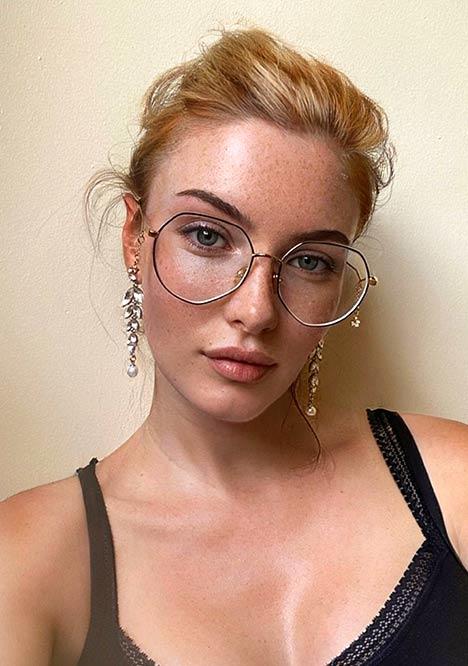How to buy the right tinted glasses?
Tinted glasses go way back to the 18th century when English inventor and designer James Ayscough made glasses with green and blue tints. He believed that tints could improve one's vision. He then made those tinted glasses for public consumption.
Today, tinted glasses have become a fashion trend that is here to stay. They're great additions to your fit when going outdoors, especially during the summer. Besides being fashionable, prescription lenses can also have specialized tints. As you already know, you see different tint colors on the market.

What are tinted glasses for?
In most cases, the tints on your eyeglasses protect your eyes from the sunlight when outdoors. In general, the light from the sun contains a higher percentage of blue light which scatters and overpowers other colors. Consequently, you will likely get low contrast in your vision.
Besides being useful outdoors, tinted glasses are also helpful when you're indoors. Wearing light tinted lenses indoors enhances contrast and reduces one's eye fatigue. In most cases, you can get a 20% tint on your lenses which is an excellent solution for eyes having sensitivities to indoor lights. Some tint colors even provide distinct benefits for one's vision.
Which is better, light or dark tinted glasses?
They say you do not have to judge the glasses by their tint color, especially regarding eye protection. In most cases, tints filter light in varied ways. Some are excellent at blocking light. Others enhance colors while some distort them.
Choosing between light and dark tinted glasses will depend on your preferences. You can have tints in light densities; however, they will not offer that much protection compared to darker ones. A lens with a 75% tint density will have more protection than a similar lens with a 25% tint density. In most cases, wearers can opt for a 75% density on their tints which can be helpful when outdoors to get maximum sun protection.
Overall, the color of the tint will not matter. So long as you get the proper tint density for your lenses. Of course, for some, colors will be highly valued, especially if you're using them to pair with your outfits.
Differences between sunglasses and tinted glasses
There's not much difference as sunglasses, and tinted glasses are closely similar. In most cases, sunglasses tinted lenses are dipped in a dye that is absorbed by the lens, giving a darker color like brown or gray. These tinted glasses essentially reduce the amount of light passing through the lenses. They may reduce light, but some tinted glasses do not eliminate glare.
Instead of having various tint colors, sunglasses usually come in black and darker lenses. They protect from UV light, similar to tinted glasses. Consequently, you lower the risk of cataracts. In most cases, some sunglasses can rescue headaches and migraines.
Whether you opt for the usual sunglasses or decide to get more trendy with tinted glasses, ensure you get the optimum benefits of these glasses. After all, you have to invest some money to purchase these pieces.
How to buy the right tinted glasses?
One must understand things to get the best-tinted glasses on the market today. Consider the following points while you weigh your options.
1. Identify where you want to use the glasses.
As you already know, every tinted glass has a purpose. Even the density of the tint will matter. If you are outdoors and need protection from outdoor lights, you must have a higher tint density. The optimum benefit of tinted glasses is knowing how to use them.
2. Consider your face shape and skin tone.
It's another cardinal rule when looking for any glasses. Look for those frames that complement your facial structures so they can accentuate your features accordingly. At the same time, consider your skin tone when buying colored glasses. For cooler skin tones, you can opt for pink, purple, black, gray, and beige. Meanwhile, shades of brown, olive green and light tortoise are ideal for warmer skin tones.
3. Cost.
Regardless of how affordable tinted glasses are, you will technically spend some money on buying those. It's hard-earned money you pay for something you want to get the most benefit from. Hence, getting durable tinted glasses at a considerable price is ideal.
Recommended articles:
Explained: what do yellow sunglasses say about you?
Night vision glasses: best eyewear for nocturnal activities
Guide to picking the best glasses for night driving
Buying the best night driving glasses: do they work?
Sunglasses color guide: what color fits you best?
Eyeglasses color guide: what color fits you best?
Guide to picking the best color blind glasses





















